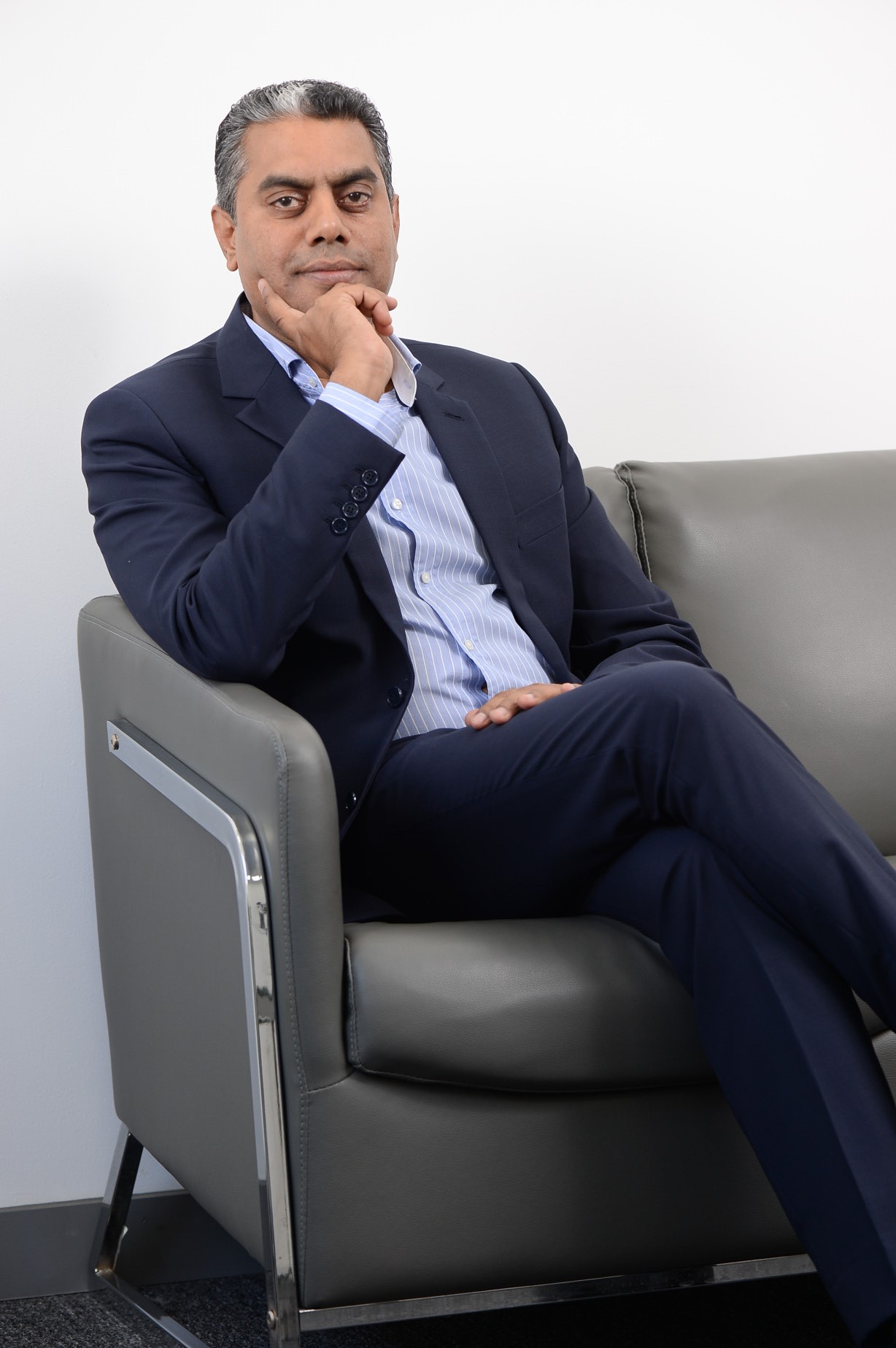Shateeaum Sewpaul (General Manager of Harel Mallac Technologies) AI is having a major impact on how we live and work
Share

Mauritius is embarking on a journey to become a Smart island. Are we getting closer to this objective?
2019 was a vibrant year for the technology industry worldwide. Artificial intelligence (AI), analytics, Internet of things (IoT) and robotics have accelerated digital transformation and organizations are embracing digital transformation not just to address technology challenges and opportunities, but culture, leadership, risk and investment ones too. Locally, it has been another eventful year on the social, economic and political fronts. 2019 has witnessed some interesting ICT projects with an expected growth rate of around 4 %. As pillar of technology change, AI in all its dimensions, from conversational AI to robotics and machine learning, is having a major impact on how we live and work. On the IoT side, any analog element of our lives – a car, a road, a factory, a house – is becoming digital, allowing us to capture data and create an environment that not only senses change, but also reacts to it in real time. These emerging technologies are being adopted in a significant manner internationally and Mauritius is working on an appropriate roadmap where we can go very fast. There has been a major sensitization through international events, ongoing campaigns by local associations namely MITIA, OTAM and the newly created Mauritius Fintech Africa Hub amongst others. Despite this huge interest around AI/emerging technologies, there are still avenues for us to explore and activate locally so as to have profound transformation projects.
},Digitalization is rapidly spreading in the corporate world mainly in the financial sector. The penetration of Blockchain technology and the national payment switch are clear indications. Your comments?
The banking sector, similar to previous years, is witnessing an ongoing change as part of its Digitalization Roadmap. However, digitalization in the financial sector doesn’t start and stop with Blockchain and payment systems, there is much more to it. The launch of the national payment switch by the Bank of Mauritius will surely act as a catalyst to allow and facilitate the creation of digital and cashless payments but banks are busy investing in a more holistic innovation journey to enhance their services for their customers.
What will be the contribution of the ICT industry to socioeconomic growth during the next decade?
Already a major pillar of the economy, the ICT Industry in Mauritius is expected to become the most important support to drive socioeconomic growth, constituting a powerful tool to open up new prospects for sustainable development and enhance Mauritius’ role in international economic value chain. As it cuts across all sectors of the economy, the phenomenal integration of technology in everyday life coupled with its increasing importance in economic development at every level and all sectors of the economy has created a globally significant and big demand for high-skilled information technology experts.
Mauritius has emerged and wants to be the leader in Africa in ICT. The government has set out an ambitious blueprint with emphasis on digital government, ICT infrastructure, innovation, talent management and Cyber Security to support this vision. At the same time, the technology industry is faced with a tricky balancing act: continue to drive innovative solutions while grappling with the side effects of those solutions in the global economy. Economies, jobs, and personal lives are becoming more digital, more connected, and more automated. Waves of innovation build over time, powering the technology growth engine that appears to be on the cusp of
How are new technologies redefining the business world?
We have entered into the fourth Industrial revolution and all emerging technologies are disrupting the value chain of businesses. More than ever, customers are at the heart of any corporate and digital strategy. To satisfy them, entrepreneurs have innovated their services aligned with emerging technologies. Customer experience is increasingly becoming the basis of their competitive efforts, hence the use of methodologies like Design Thinking process, also practiced by Harel Mallac Technologies. On one hand, when large firms decide to embrace technology, they have the funds and resources to implement that technology on a large scale. Small businesses rarely have that advantage. However, there is somewhere that entrepreneurs do have an opportunity. Unlike others, an entrepreneur must go through significantly fewer steps to test out and incur lesser costs to adopt the newer technologies. Because they are nimble, they can jump on the innovation bandwagon rapidly and develop new solutions from scratch. The accessibility and lower cost of adoption coupled with the agility of entrepreneurs allow the emergence of many startups especially in the financial technology sector with employment opportunities
As we step into a new era, what are the main challenges facing the ICT sector?
The main challenges are human resources, regional and international integration and the need for innovative projects. Mauritius, being a small Island, is limited in terms of its capability to respond to specialized technical resources requirements. Nevertheless, we have seen a lot of efforts by both the public and private sectors to work on development programs to address this crucial gap. Tertiary institutions have also shown a strong will to collaborate and address the skills mismatch for the ICT industry. Moreover, there is an urgency to use Mauritius as an Innovation platform, or rather as a Technology lab to push Mauritius as a technology services and skill excellent center for the rest of Africa and the world.









